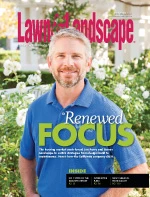|
|
The state of the industry can be described by two words: in transition. Tomorrow's challenges are accelerating toward us. Environmental degradation, finite resources and escalating cost for commodities will shape a challenging future. What communities and our customers expect from us now, more than ever, is for us to be the experts. What experts do is identify and promote the right outcomes, and provide real solutions to real problems in a way that doesn't create more problems in the future. These outcomes cannot just satisfy the customer request, but have to embrace a highest and greatest good for the community as well. For the contractor whose primary focus is on making payroll, the breadth of these concerns may seem daunting, and as though they should be someone else's to solve. To think about what right outcomes may be, could mean re-thinking some fundamental aspects or ways of doing things that we through habit consider a given. For example, what if as an industry we stopped taking biomass to a landfill? What are the changes in perception, practice, equipment, new skills or awareness that would have to be in place to support that shift in outcome? A fundamental shift like that has many layers, all of which need to be carefully thought through. This is not a new idea. In fact, it is a very old notion, but the many layers to this issue point to cycles of life and resources that need to be re-interpreted for the 21st century and beyond. Right outcomes include individual property owner, contractor and community understanding their parts in use of resources in a watershed – resource use that is regenerative, not disruptive or exploitative for short-term affect. The green industry is in transition from a labor-based industry to one that can provide science-based solutions to environmental challenges. We have a unique and key position in the debate and discussion about land use, and watershed planning and management. With work and a commitment to a step-by-step improvement in our awareness, skills and processes, we can become the experts. The state of the industry is defined by the actions of each company. Make it a focus, and get your team involved in imagining and understanding what changes, obstacles, benefits and opportunities could be for the company if high-quality landscape management was done without driving bio-mass from the site to a landfill. The pace of change is accelerating. It may be that some of what you and your company have always done will no longer be viable in five years. Participate in your local industry trade association and start a dialog about regenerative practices. The outcome of those discussions will inform what the state of the industry will be in 2016. John Ossa is the national accounts director at Irrigation Water Technologies America and owns Irrigation Essentials; mail jossa@giemedia.com.
|
Get curated news on YOUR industry.
Enter your email to receive our newsletters.
Explore the October 2011 Issue
Check out more from this issue and find your next story to read.
Latest from Lawn & Landscape
- Ceramica acquires Fundraising Brick
- Senske Family of Companies acquires Huron Pest Control
- Sunseeker unveils new X7 Series Robotic Mowers
- Bobcat Company debuts MT120 mini track loader
- Senske Family of Companies opens new corporate office
- Autonomowus Lawn Company adds robotic mowers to Genan tire recycling plant
- Visterra Landscape Group acquires Cleveland-based H&M Landscaping
- SiteOne names Carrothers VP of agronomic business development








